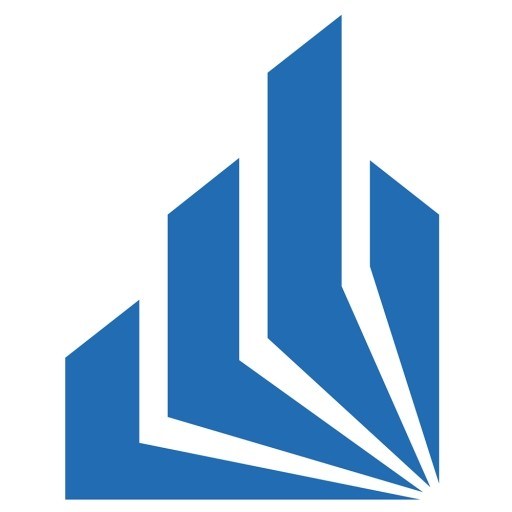Photos of university / #dublincityuniversity
The Bachelor of Engineering in Electronic and Computer Engineering at Dublin City University offers a comprehensive, industry-focused curriculum designed to prepare students for a dynamic career in the rapidly evolving fields of electronics, computer systems, and embedded technologies. This programme combines foundational principles of electrical and electronic engineering with advanced knowledge of computer hardware, software, and network systems, ensuring graduates possess a versatile skill set applicable to various technology sectors. Students will engage in a rigorous blend of theoretical studies and practical laboratory work, fostering both conceptual understanding and hands-on experience with modern electronic components, microprocessors, embedded systems, digital design, and communication protocols. The programme emphasizes innovation and problem-solving, encouraging students to work on real-world projects and collaborate with industry partners, thus developing critical skills in design, analysis, and system integration. Throughout their studies, students will also gain insights into emerging technologies such as the Internet of Things (IoT), artificial intelligence, and cybersecurity, preparing them to contribute effectively to technological advancements and digital transformation initiatives. The degree also incorporates opportunities for work placement and industry internships, providing invaluable exposure to professional environments and enhancing employment prospects after graduation. Upon completion, graduates are equipped for careers in sectors including electronics manufacturing, telecommunications, software development, embedded systems, and systems integration, or for further postgraduate research. The programme’s strong emphasis on innovation, technical excellence, and industry relevance makes it an ideal choice for students passionate about shaping the future of electronic and computer engineering.
Programme
This newly revised offering combines the expertise of Electronic Systems and Telecomunications Engineering in an updated, industry-relevant modern programme.:
- To obtain a systematic understanding of the theory, concepts and methods at the forefront of knowledge pertaining to selected topics chosen from a wide set within Electronic & Computer Engineering.
- To form a critical awareness of present-day, state-of-the-art and current developments and research at the forefront of a range of selected specialised areas in Electronic & Computer Engineering together with a knowledge and understanding of specialised electronic & computer engineering practice, methods and techniques
- To develop the ability to identify, formulate, analyse and solve engineering problems and to integrate knowledge, handle complexity and formulate judgements related to Electronic & Computer problems.
- To develop the skills to design components, systems or processes to meet specific needs and the knowledge and understanding of analysis and design processes and techniques and the ability to apply them in unfamiliar situations
- To allow a more intensive exposure to modern, industry relevant technologies through optional Majors in the Internet of Things (IoT), Nanotechnology, Image Processing and Analysis or Advanced Data Networks.
General Entry Requirements
The following general requirements apply:
An honours degree in Electronic/Electrical Engineering, Applied Physics, Computer Sciences or other Engineering disciplines is a normal requirement for direct entry onto the Graduate Certificate/Graduate Diploma/M.Eng programmes, however:
There are two entry routes for both the Graduate Certificate/Diploma:
- A basic primary degree in a relevant disciple
or
- A related Diploma plus a minimum of three years relevant experience. Applicants applying via this route will also be required to attend an interview as part of the application process.
Non-EU applicants are assessed under the same criteria as specified above and their qualifications are also checked for equivalence using the NARIC system (UK National Academic Recognition Information Center).
Existing students have the performance-related options of transferring between programmes, such as moving from the Graduate Diploma to the Masters.
For those taking a single module a recommendation from the module coordinator is required.
Dublin City University is proud to award merit-based scholarships to high achieving students who enter the Faculty of Engineering and Computing and the Faculty of Humanities and Social Sciences for the 2016/17 academic year. These scholarships are available to Indian applicants only and are based on academic merit to those who have a Full Offer.
The Faculties also award scholarships of €1,000 to high achievers entering Masters and Bachelor programmes who are ranked by academic achievement.
The Bachelor of Engineering in Electronic and Computer Engineering at Dublin City University offers students a comprehensive education in the fields of electronic engineering and computer engineering, combining theoretical knowledge with practical skills. This programme is designed to equip graduates with the expertise necessary to develop innovative electronic and computing solutions applicable in various industries, including telecommunications, information technology, automation, and consumer electronics. The curriculum covers core areas such as digital and analogue electronics, embedded systems, computer architecture, software development, signal processing, control systems, and telecommunications. Students gain hands-on experience through laboratory work, design projects, and industry placements, fostering problem-solving abilities and technical proficiency.
The programme emphasizes the integration of electronic engineering principles with computer science, enabling students to design and develop complex embedded systems, hardware-software interfacing, and networking solutions. It also includes modules on cybersecurity, digital communications, and IoT (Internet of Things), reflecting current technological trends and industry demands. The course structure offers a blend of lectures, tutorials, laboratory sessions, and project work, promoting active learning and teamwork. Students are encouraged to undertake industry placements, which provide real-world experience, enhance employability, and facilitate professional development.
The faculty comprises experienced lecturers and researchers committed to delivering high-quality education in a contemporary learning environment. The university’s facilities include state-of-the-art laboratories equipped with modern electronic test instruments, computing resources, and prototyping tools. Dublin City University also offers strong links with industry partners, ensuring the curriculum remains relevant and aligned with technological advancements and workforce needs. Graduates are well-prepared for careers as electronic and computer engineers, systems designers, software developers, R&D engineers, and technical consultants. Many alumni progress to postgraduate studies or entrepreneurship within the technology sector. Overall, the program aims to produce versatile engineers capable of contributing innovative solutions to complex technological challenges, supporting Ireland’s growing technology sector and the global digital economy.










